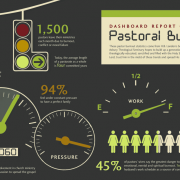BIBLICAL INSTRUCTION: Monologue or Dialogue?
Natural Extremists
We are prone to extremes. One issue we tend to go to one extreme or the other on in the church is that of biblical learning. On the one hand, there are those who are committed to preaching the Bible in the form of monologue. When they think of Christians learning the Bible, they envision a lone preacher standing before a crowd, delivering a studied and crafted sermon in the power of the Holy Spirit, spitting presuppositions and propositional truth.
On the other hand, there are those who are committed to learning the Bible through sharing and dialogue. When they think of Christians learning the Bible they picture a group of friends sitting down together to share how the Bible impacts them personally. They see themselves sitting with friends over lattes in a coffee shop, or over dinner in a home, informally discussing what a portion of scripture means to each person in the group. They value the contributions and interpretations of each person who is present.
I’ve seen some people who are so committed to teaching and preaching the Bible in monologue, that they are skeptical of any kind of sharing context where multiple people contribute opinions and perspectives on the meaning or relevance of the Bible. Still I’ve seen other people who are so committed to the truth that “God can and wants to speak through all believers” come to a place where there is no room in their thinking for monologue preaching, or designated pastors who serve as primary Bible communicators for a specific community of believers.
Both/And
My contention is that both extremes are wrong, and that this is one of many areas Christians need to have a Both/And way of thinking. I believe the reasons the monologue crowd values their preferred method are generally biblical, and that the reasons the dialogue crowd values their preferred method are generally biblical as well. I believe that helpful leaders will help those entrusted to them by God to see the value and place of both monologue and dialogue in growing the church in the knowledge of God through His Word.
A Small Case for Monologue
1 Corinthians 12:29- “Are all apostles? Are all prophets? Are all teachers?” These are rhetorical questions in context. The apostle Paul is arguing for the unity of the body through the diversity of the gifts of the Holy Spirit. Because we all have different gifts, we all need each other. God has designed the body to be dependent upon Him by being codependent upon what He’s doing in each other. Not all have a Spirit-given gifting to teach God’s truth in the same way, or at the same level.
Ephesians 4:11-12: “And He gave some to be apostles, some prophets, some evangelists, and some pastors and teachers, for the equipping of the saints for the work of ministry, for the edifying of the body of Christ.” Each of the gifts described here are Bible communicating gifts at their core. Apostles preach the gospel and plant churches. Evangelists major in preaching the gospel and equipping Christians to do effectively do the same. Prophets have a teaching ministry that is trans-movement/denomination, and a ministry which applies biblical truth to timely issues under the spontaneous leading and enablement of the Holy Spirit. Pastors and teachers give biblical counsel and didactic instruction of the Word to God’s people. But four times we are told that only “some” are given by God to perform these functions in the ways these men do. Only “some” are to build the body in these particular ways.
1 Timothy 3:2 tells us that an overseer must be “able to teach.” This is not a requirement for deacons. This implies a unique teaching ministry for those called to serve as the governing body of the church. We can add to this verse 1 Timothy 5:17-18: “Let the elders who rule well be counted worthy of double honor, especially those who labor in the word and doctrine. For the Scripture says, ‘You shall not muzzle an ox while it treads out the grain,’ and, ‘the laborer is worthy of his wages.’” The Bible is to be our method for determining how to think about these issues. That’s why Paul built his case from “Scripture.” And what Scripture demands, according to Paul, is that some of the governing leadership work hard at teaching the Bible more than any other Christian or leader in the church. Their job is so important that they are to be paid to fulfill that role as they do it well.
We could go on, but these texts amply demonstrate that God intends there to be monologue-style Bible preaching and teaching in the church. He has not gifted all to teach the same way. He does not gift all to deduce the meaning of Scripture the same way. Specifically, men who are called to be the leader of the leaders in the church are Spirit-gifted to preach the Word, and be the doctrine-setting authority in the local church.
A Small Case for Dialogue
But I’m not just for monologue in the church, but for dialogue as well, and so is the Bible.
Colossians 3:16- “Let the Word of Christ dwell in you richly in all wisdom, teaching and admonishing one another in psalms and hymns and spiritual songs, singing with grace in your hearts to the Lord.” This exhortation was given to all the members of the Colossian church. They were all to play a part in “teaching and admonishing one another.”
Hebrews 10:24-25: “And let us consider one another in order to stir up love and good works, not forsaking the assembling of ourselves together, as is the manner of some, but exhorting one another, and so much the more as you see the Day approaching.” If there are a couple verses that support the idea of believers encouraging each other in small group community over lattes, these are them. Considerately stirring each other up to love God and people, and serve God people as we “gather,” is the job of “us” as believers, not just “me” as a pastor.
Conclusion
Preaching the word in monologue is biblical and necessary. If a Spirit-gifted man isn’t at the helm, preaching the Bible faithfully in collaboration with other Spirit-given leaders in the local church community, heresy abounds, and the church becomes a pool of ignorance. Men who are specifically called to fill such a “leader of the leaders” function are not allowed to function in their gift. Frankly, some need to repent of their radical commitment to the autonomy of the individual in the church. Some would reduce the church to a leaderless weak state in the name of all believers being “equal” and “usable by God.” We are all equal. God does use us all. But the question is how does God use us? For some, they are called to be primary teachers and preachers in the church in ways others are not. Let them do their job for the health of the church and the glory of God.
Additionally, God really can and does speak through every believer. God wants to display how He has changed His kids through sharing in dialogue in small group type contexts and house churches. The Holy Spirit wants to manifest Himself, and His edifying work, through every Christian. This means that while pastors need to uncompromisingly engage in the monologue preaching of God’s Word with authority, they also need to help the local church develop contexts of dialogue and sharing. We need to get over our need to control everything that is thought and said, and remember that Jesus is the real senior pastor of His people. To be sure, you are His instrument in a unique way when it comes to teaching His truth. But the goal of your ministry is to enable the body to do “the work of the ministry” which includes “teaching and admonishing one another” without you standing over peoples shoulder all the time. As pastor James Macdonald said recently, “The biblical picture isn’t that the pastor ministers to the body, but that the body ministers to the body.”
So, pastors, lets preach the Word like crazy, and take no guff for doing our God-given job. But let’s also make sure we don’t quench what the Holy Spirit wants to do by not developing and encouraging contexts of sharing, where each member of the body of Christ can have a voice and be used. I don’t do this perfectly, but I’m working on it. Join me.











